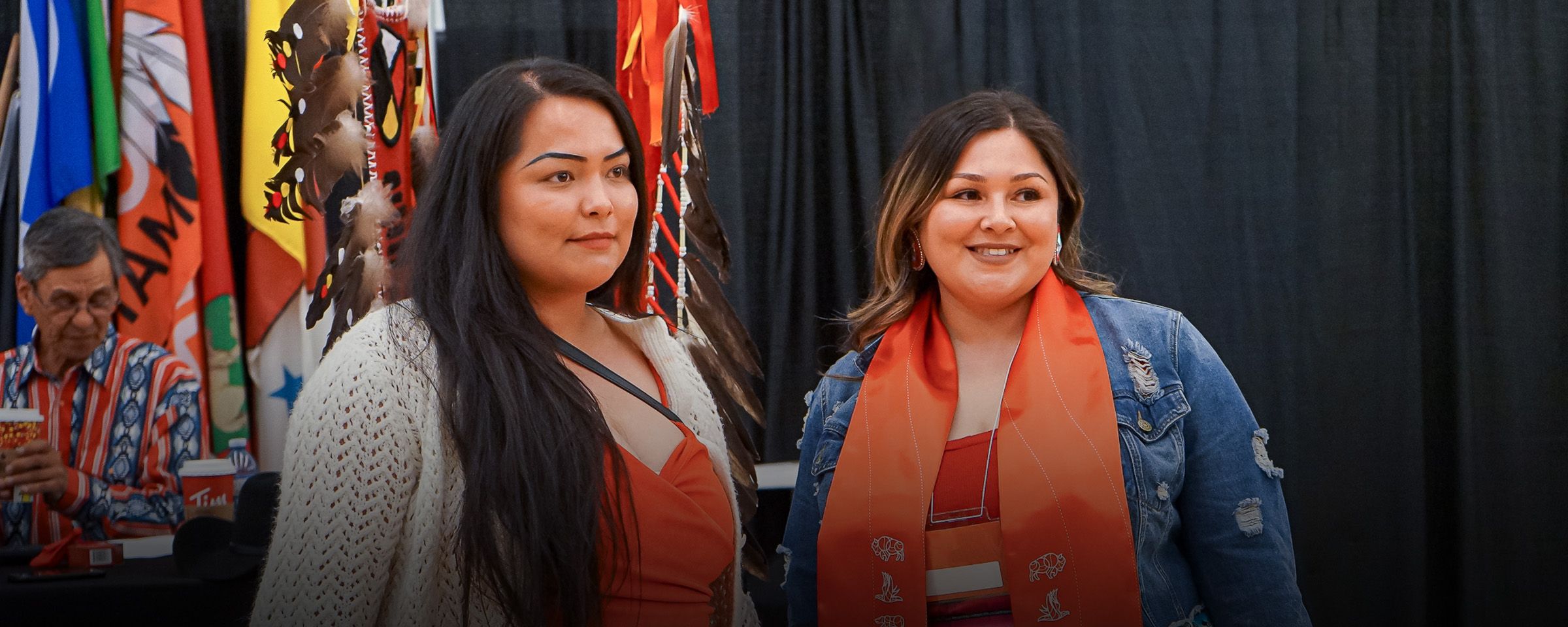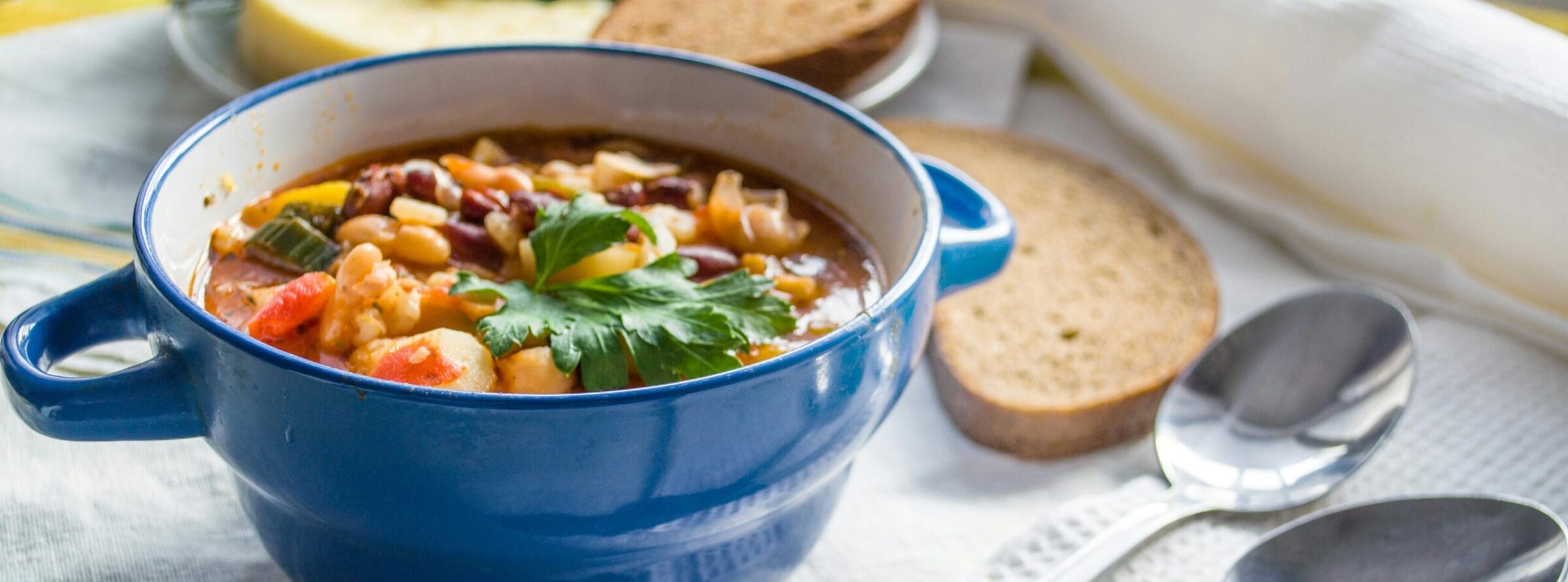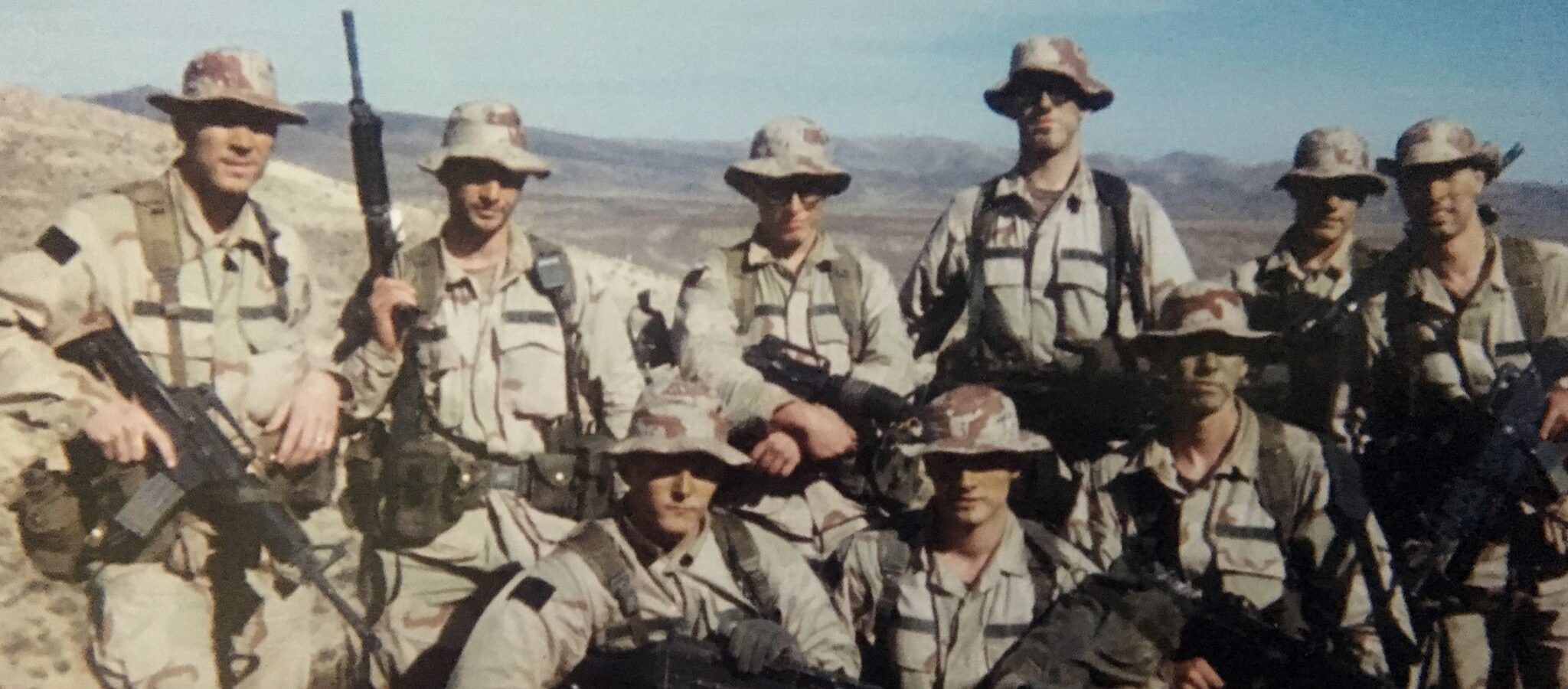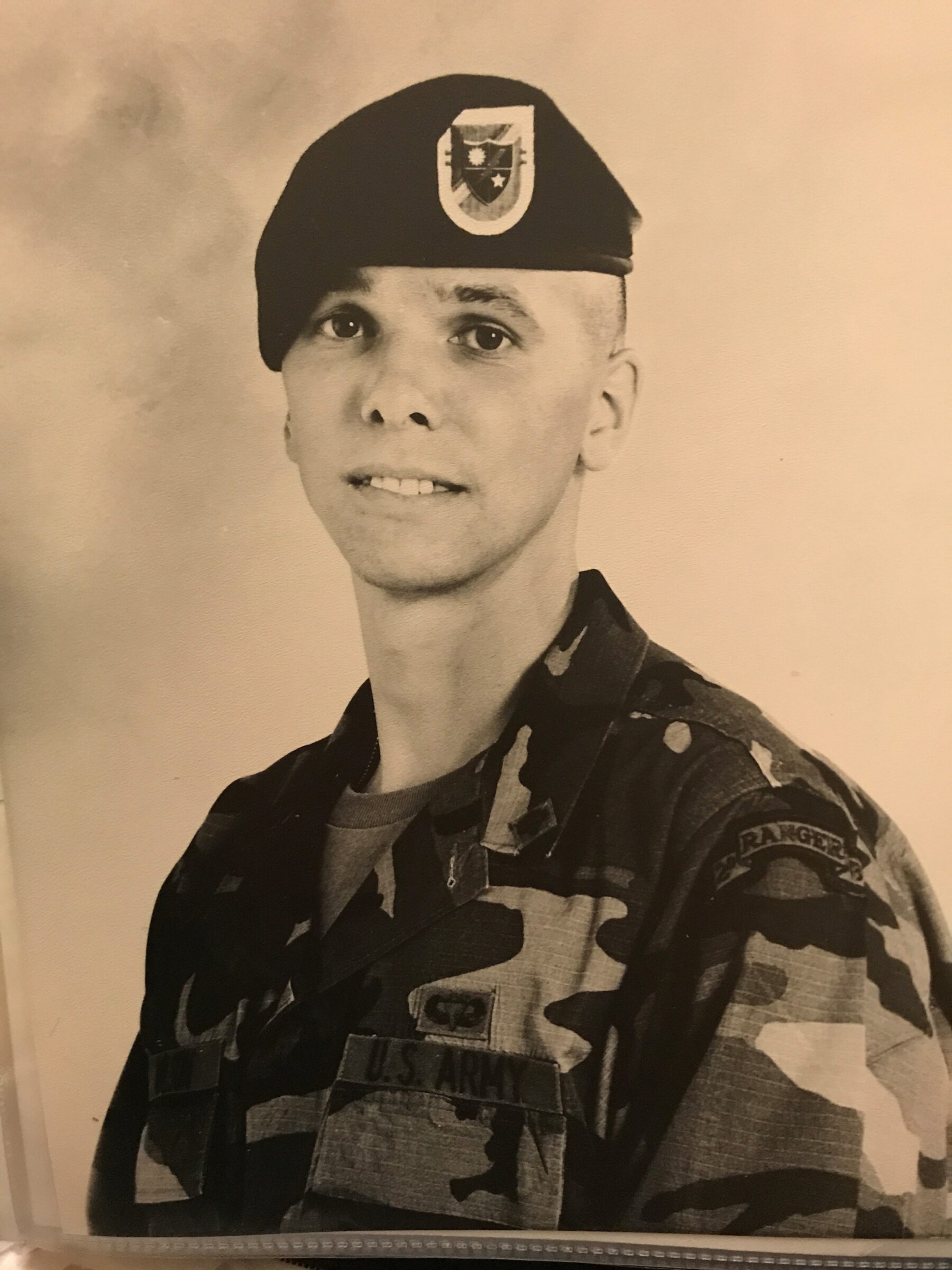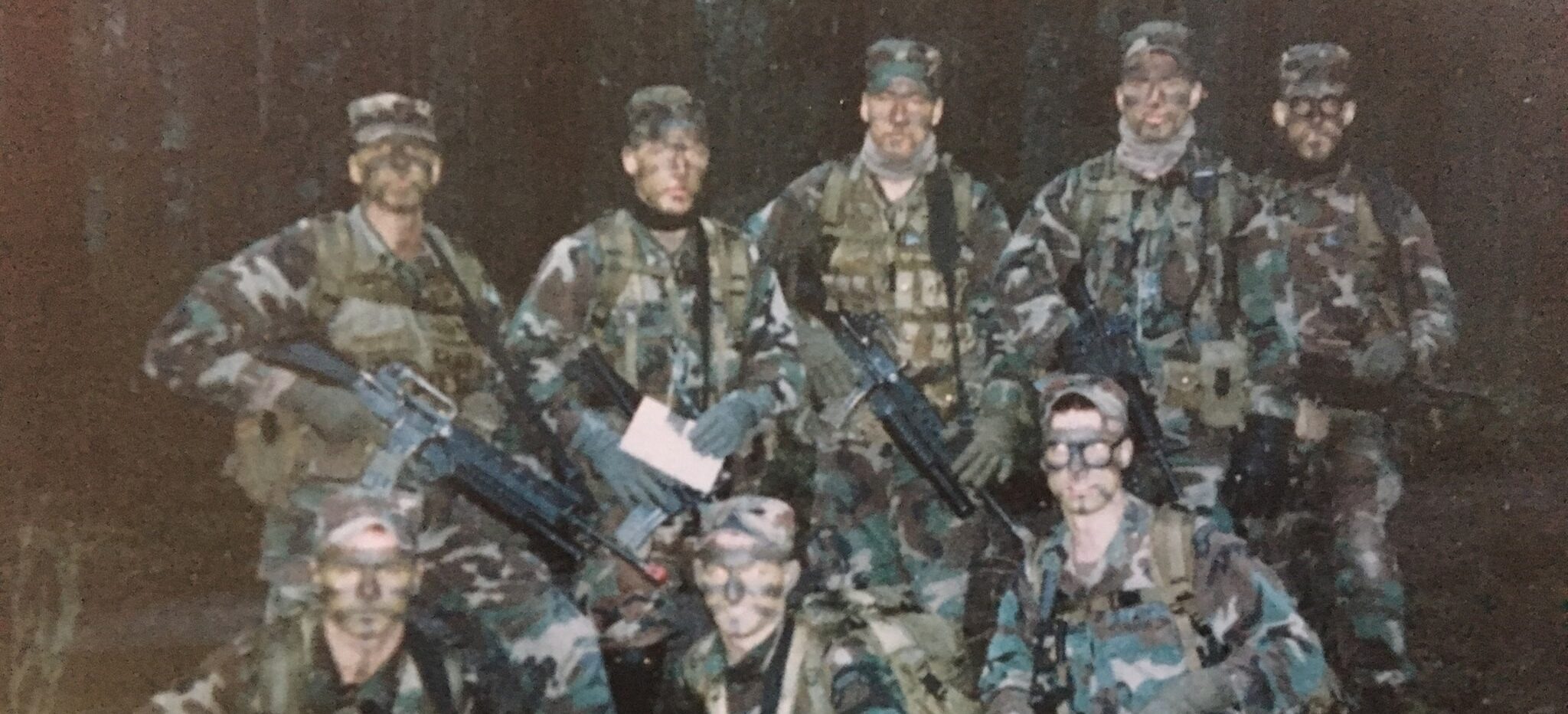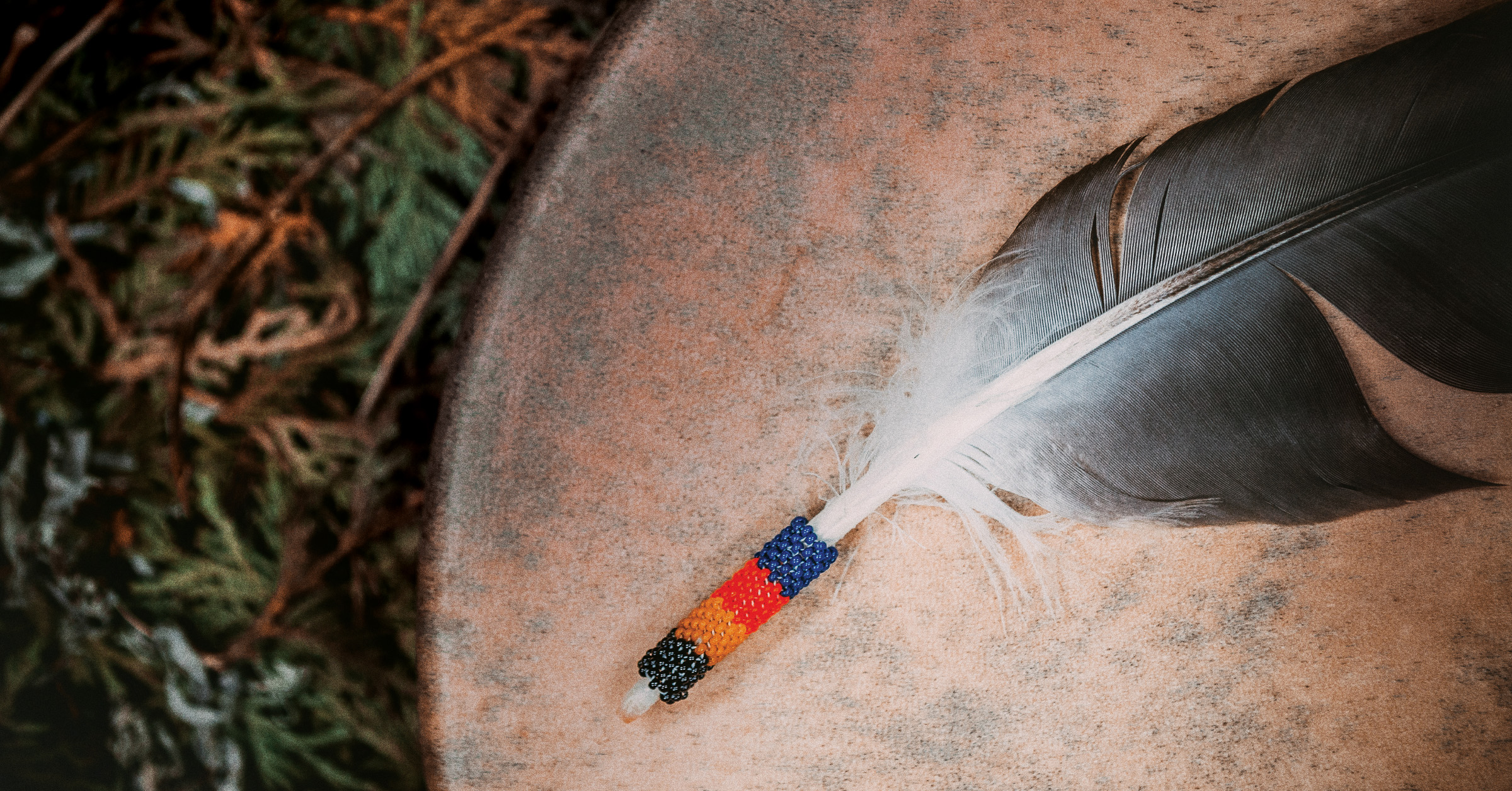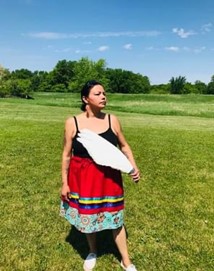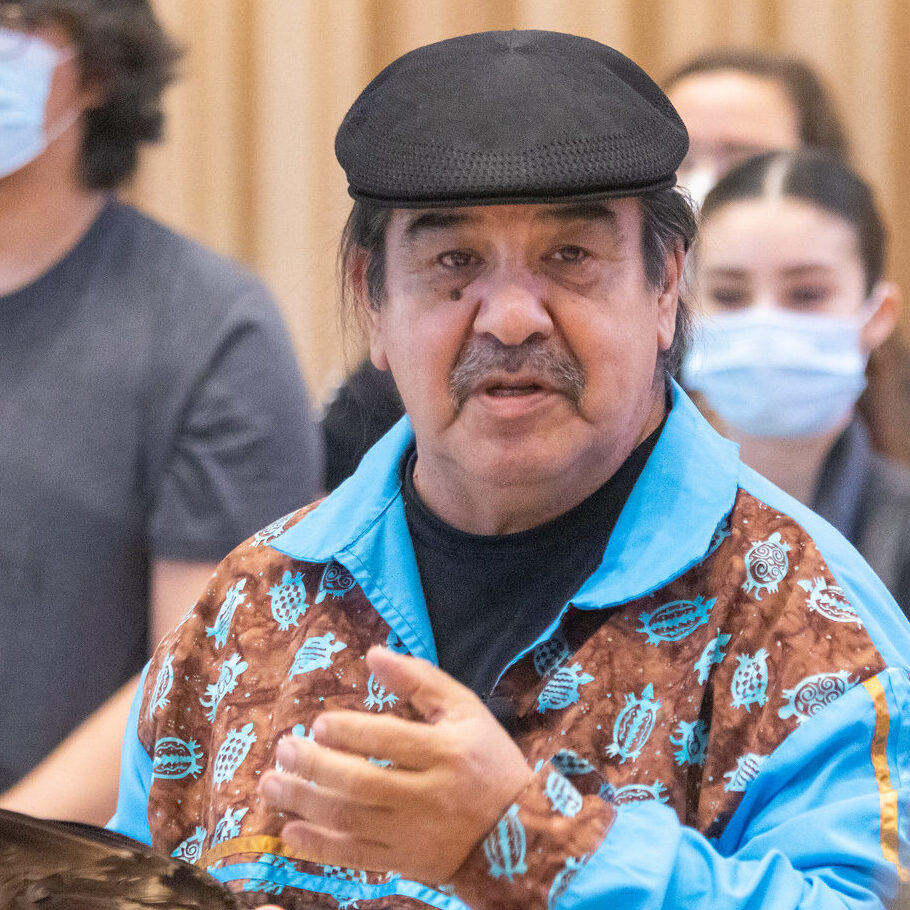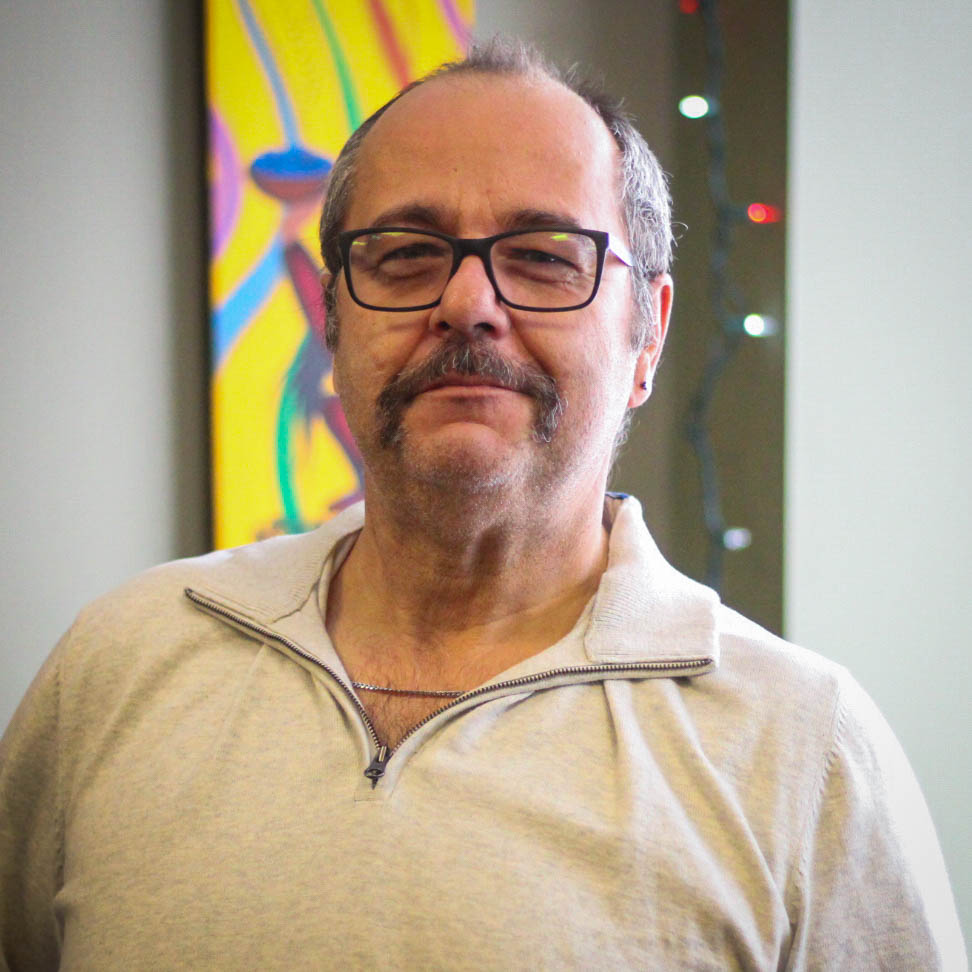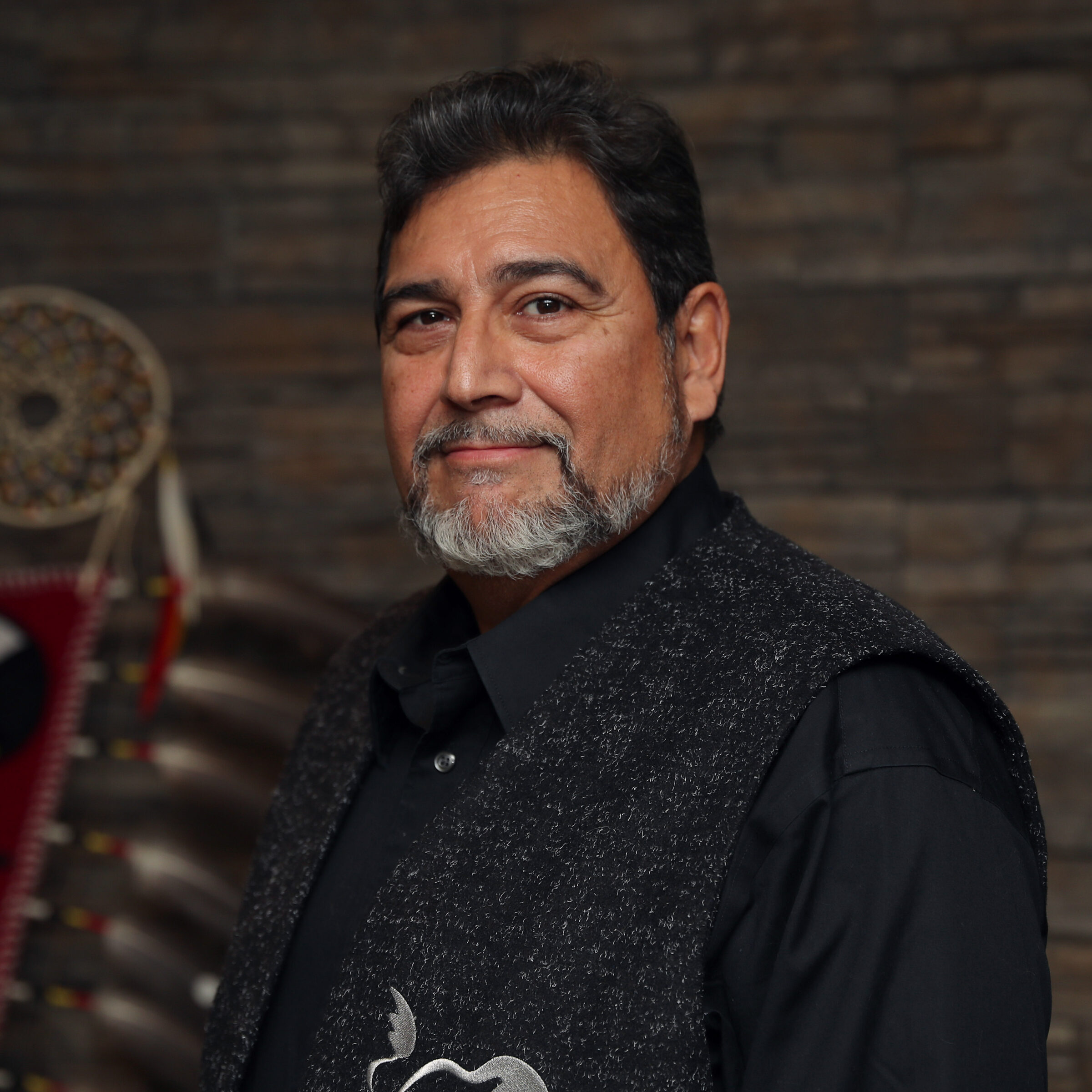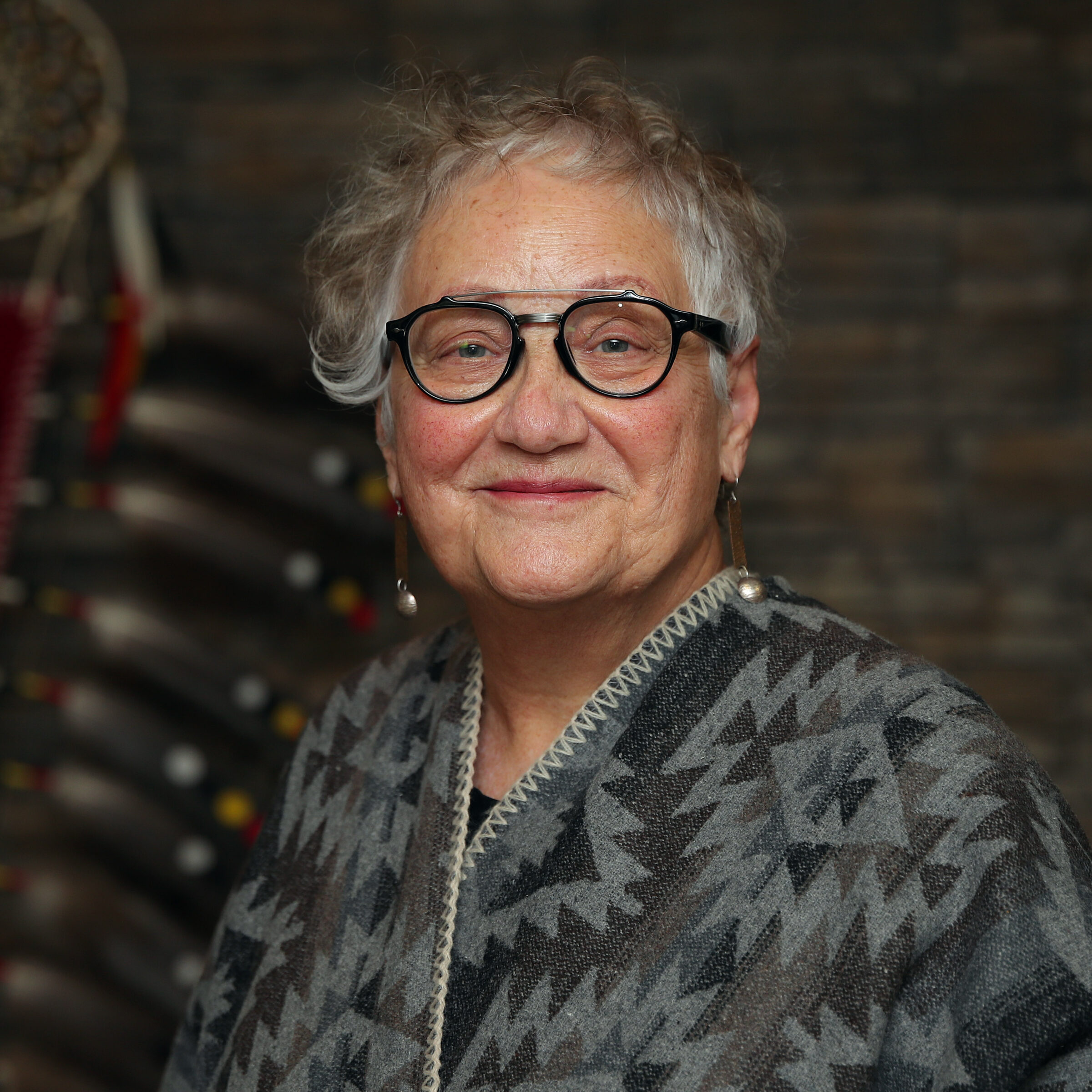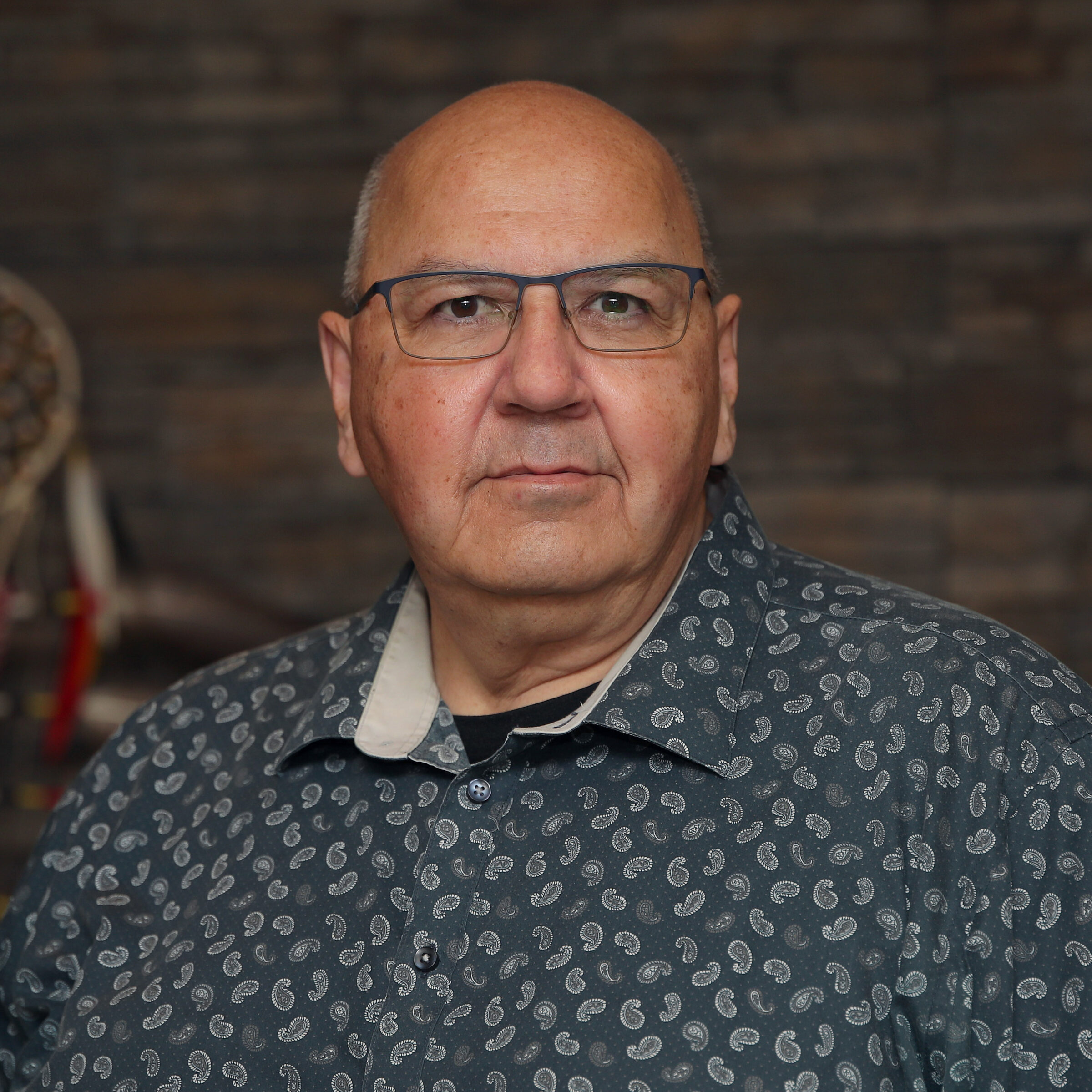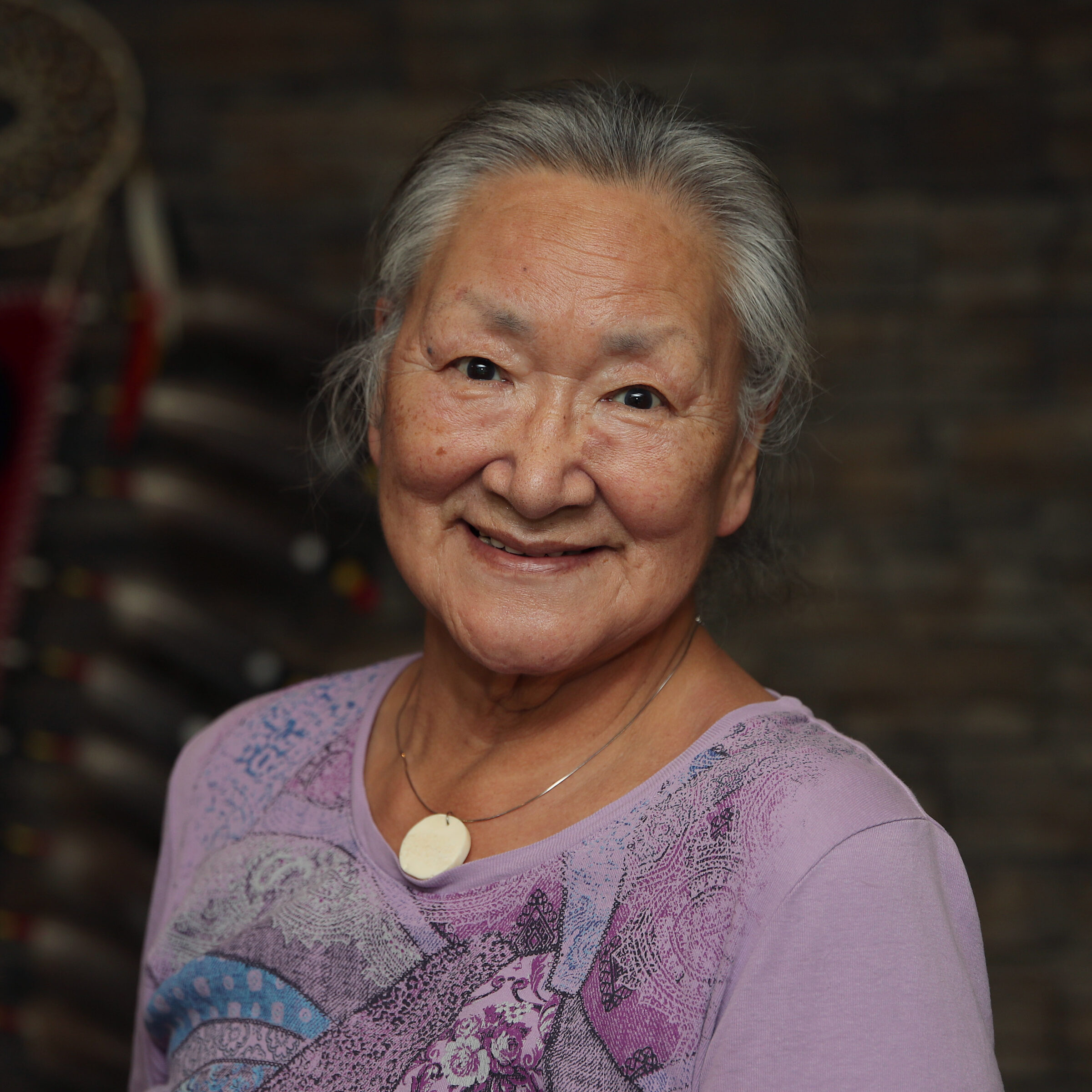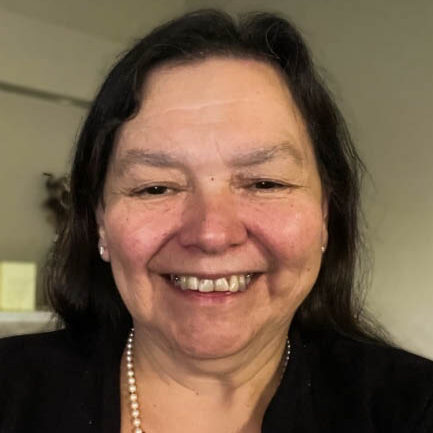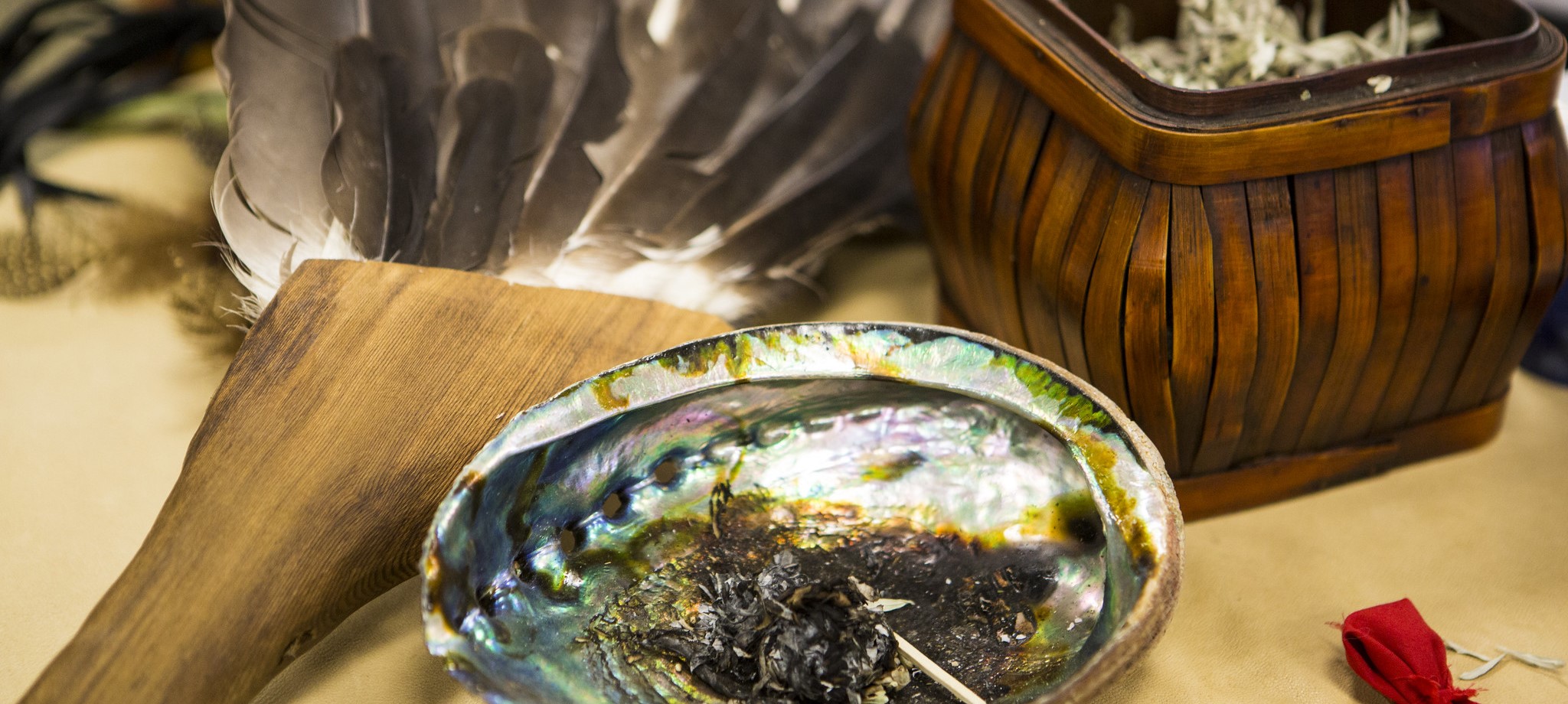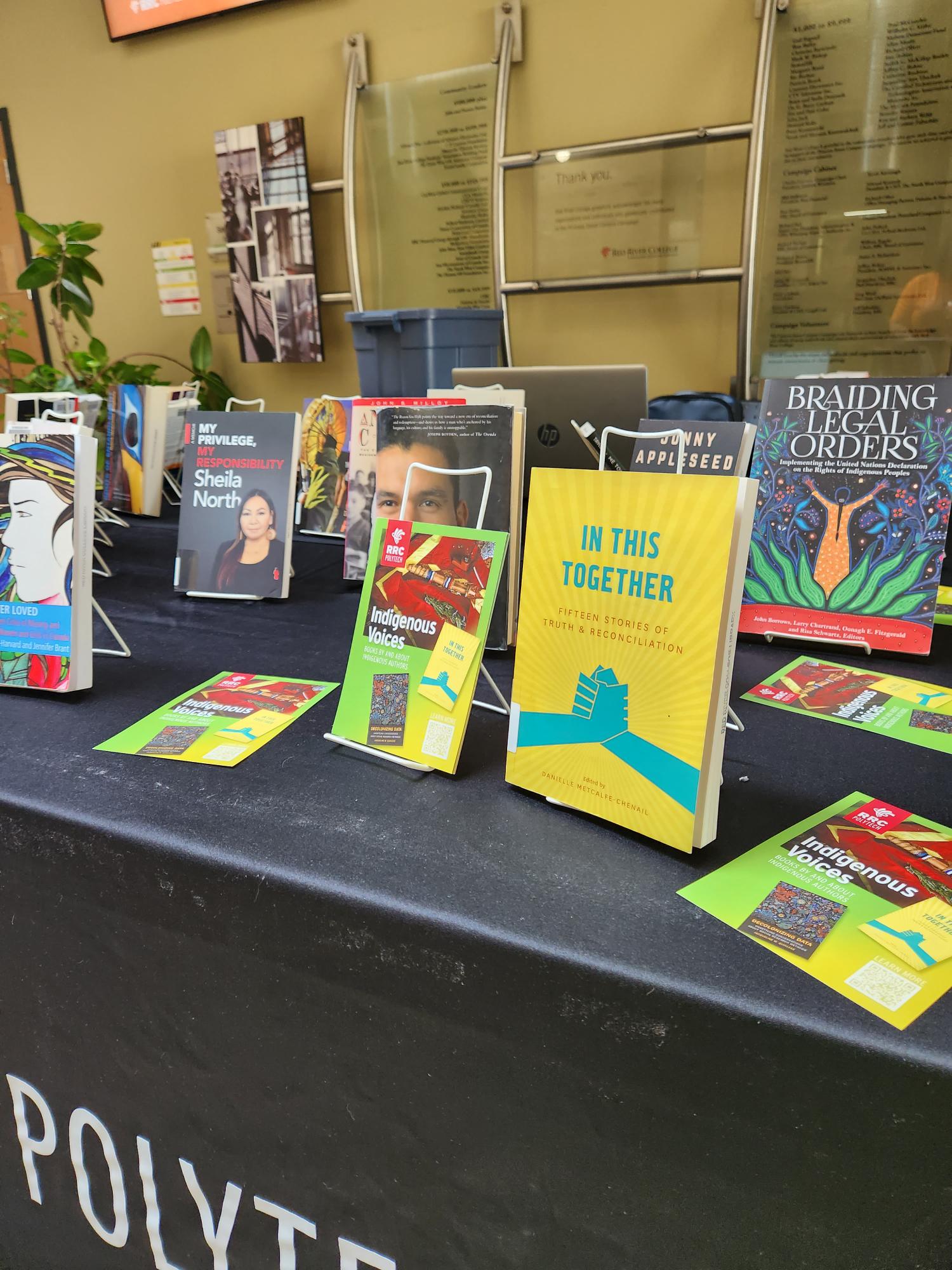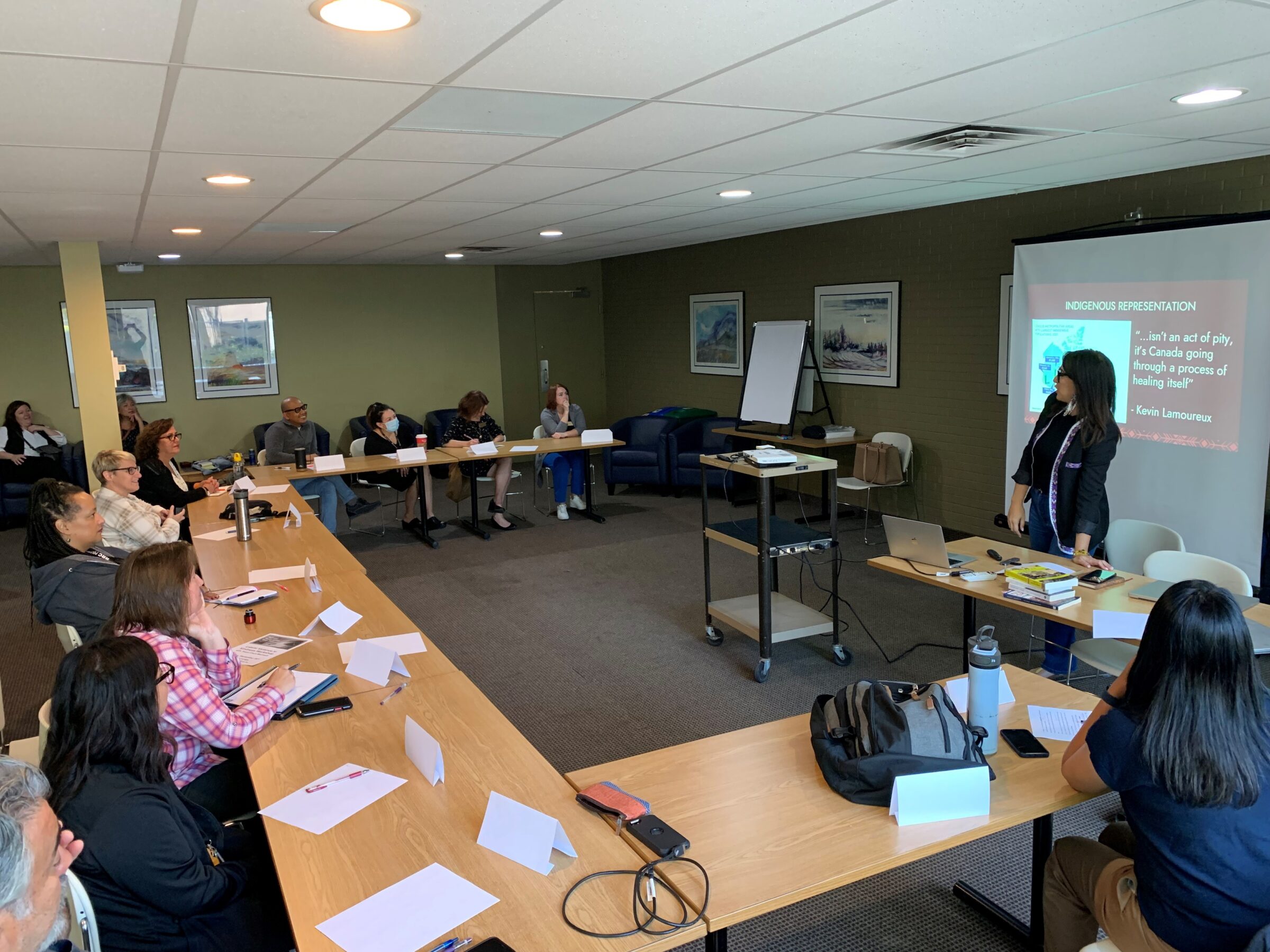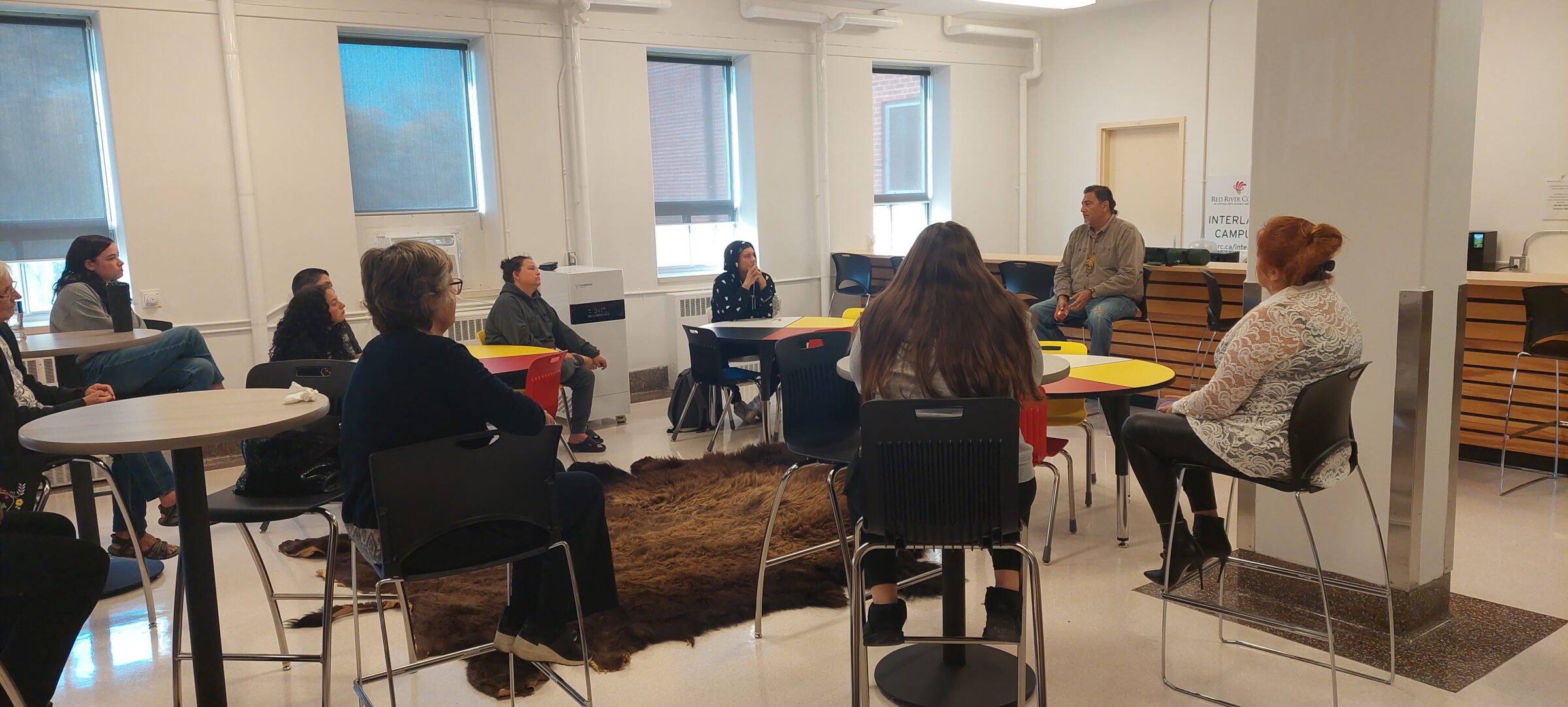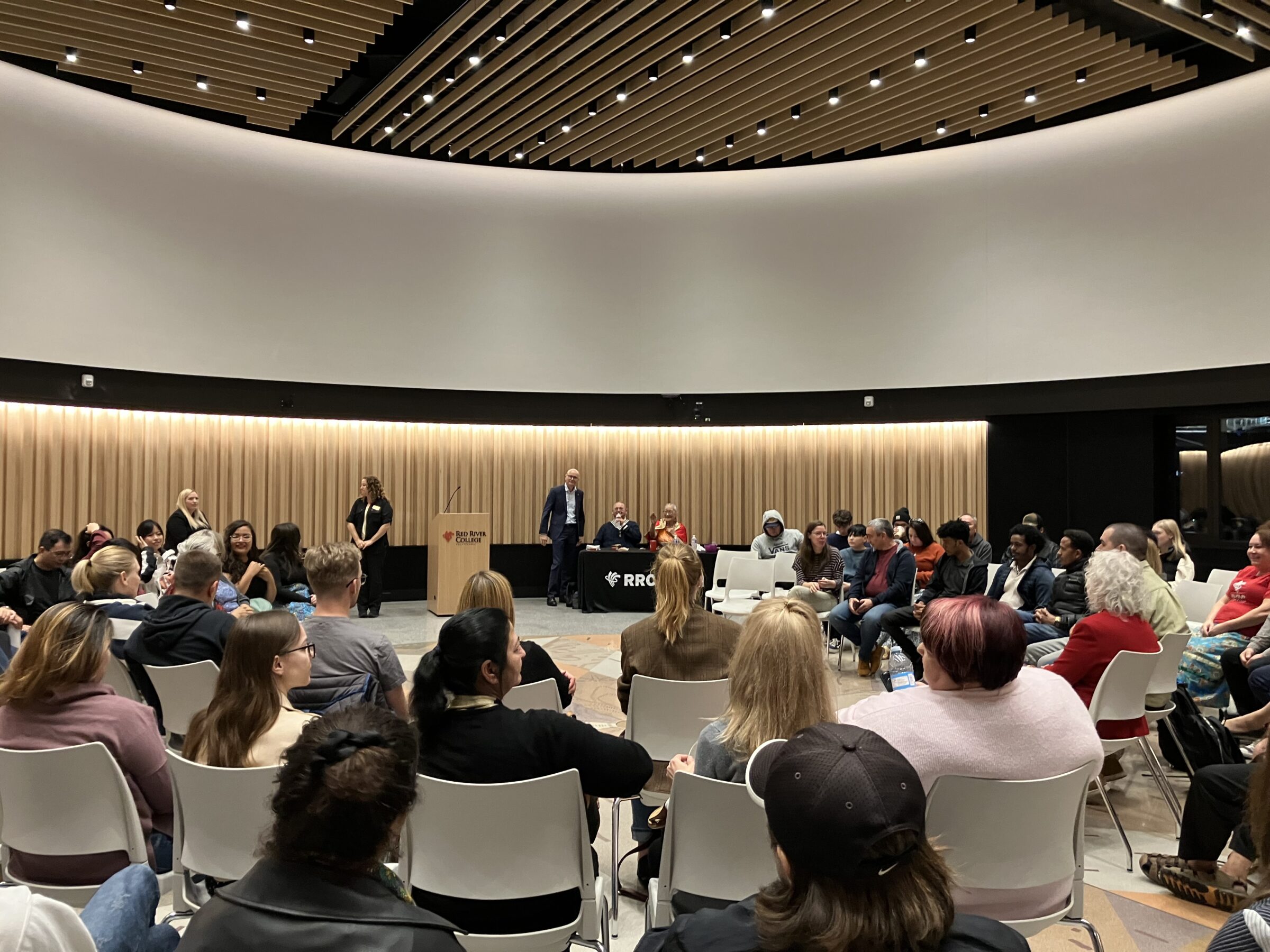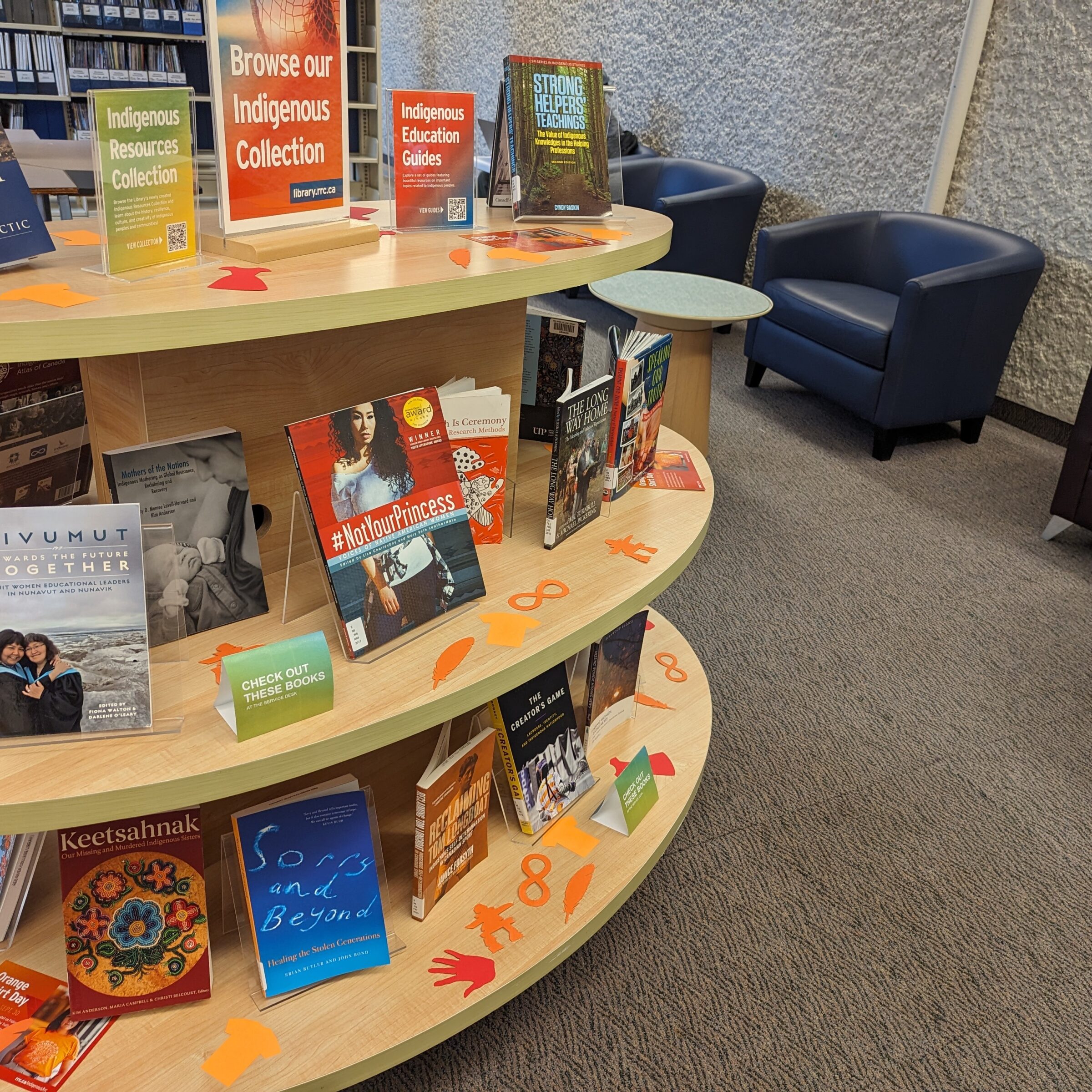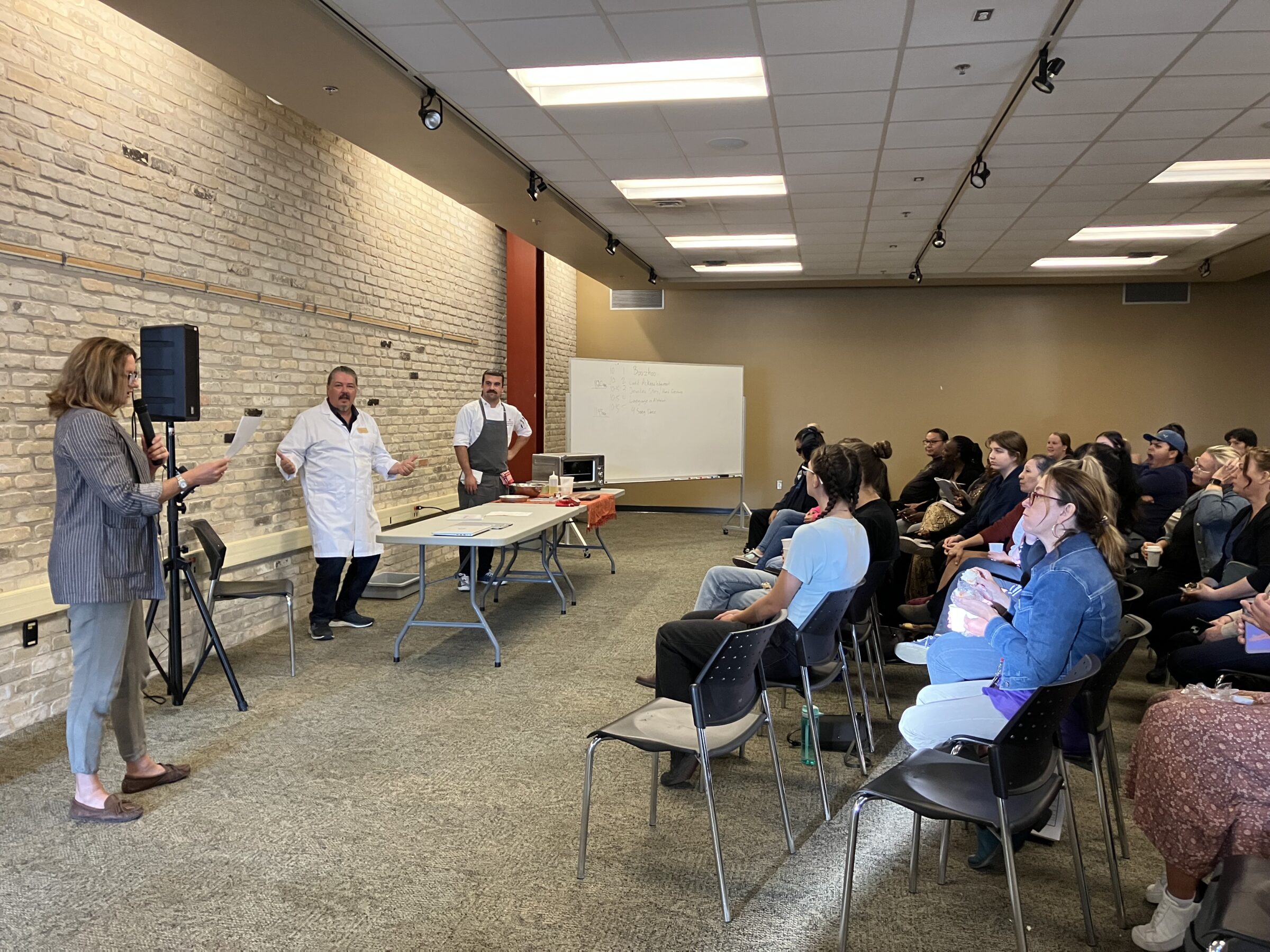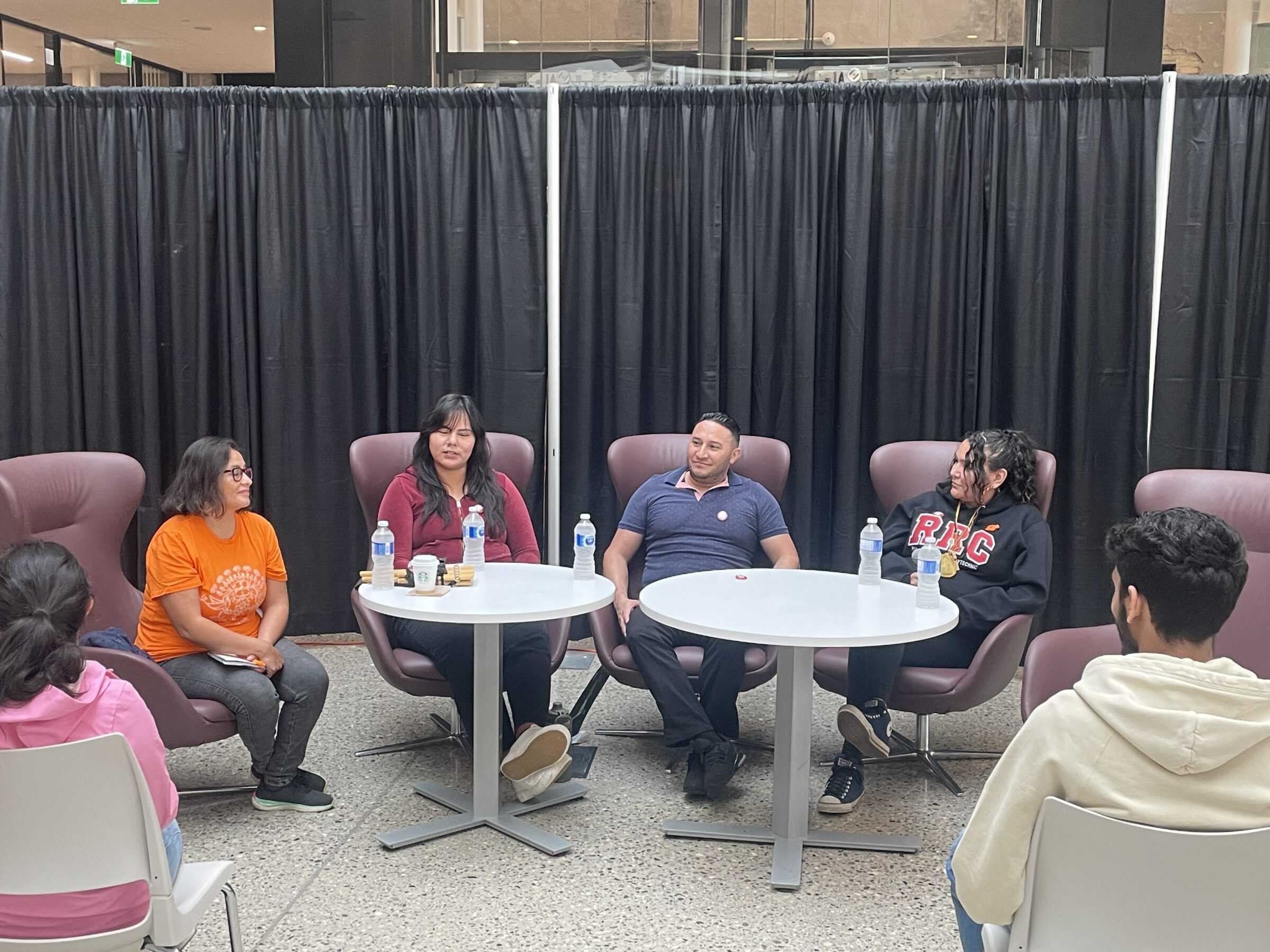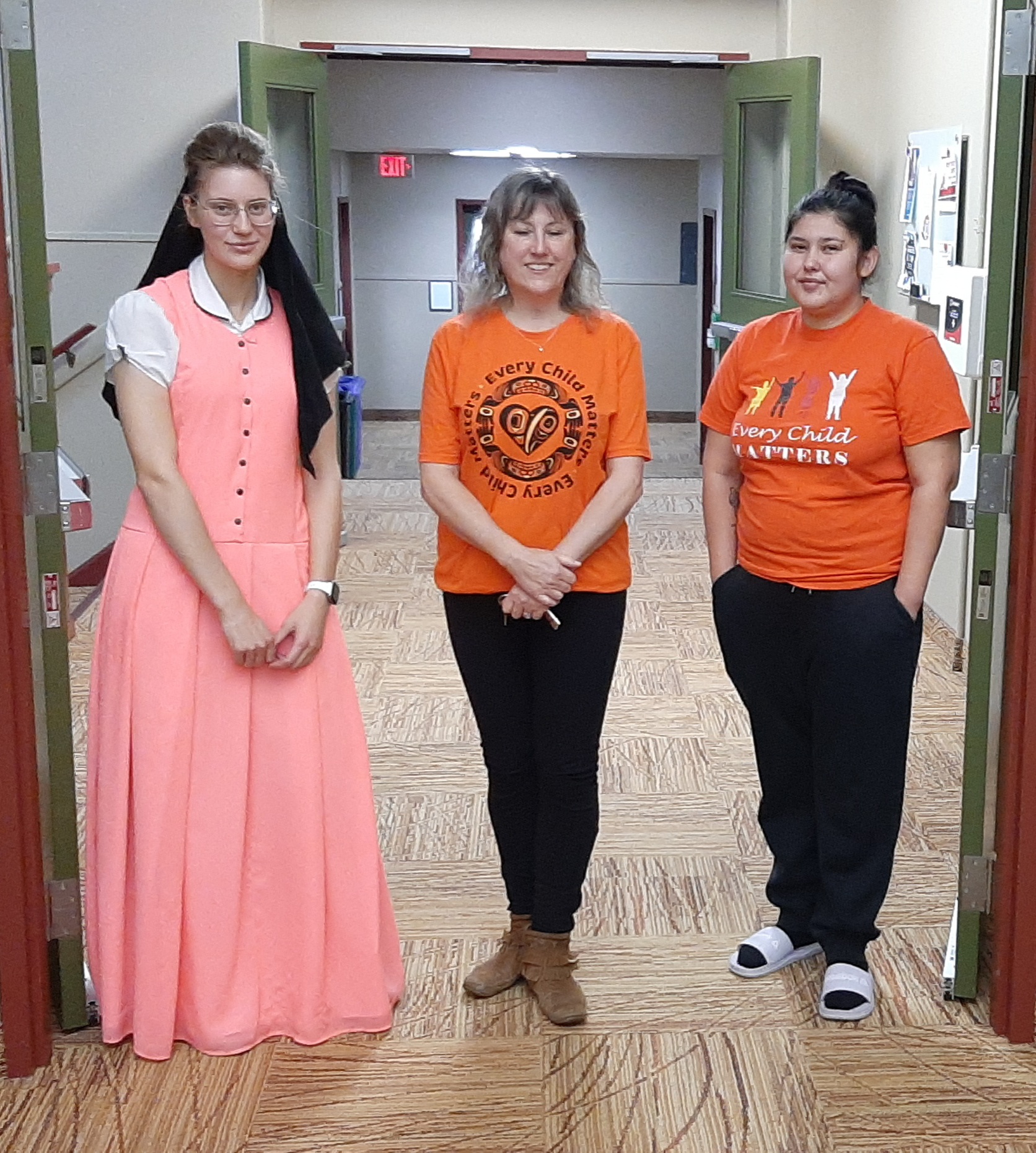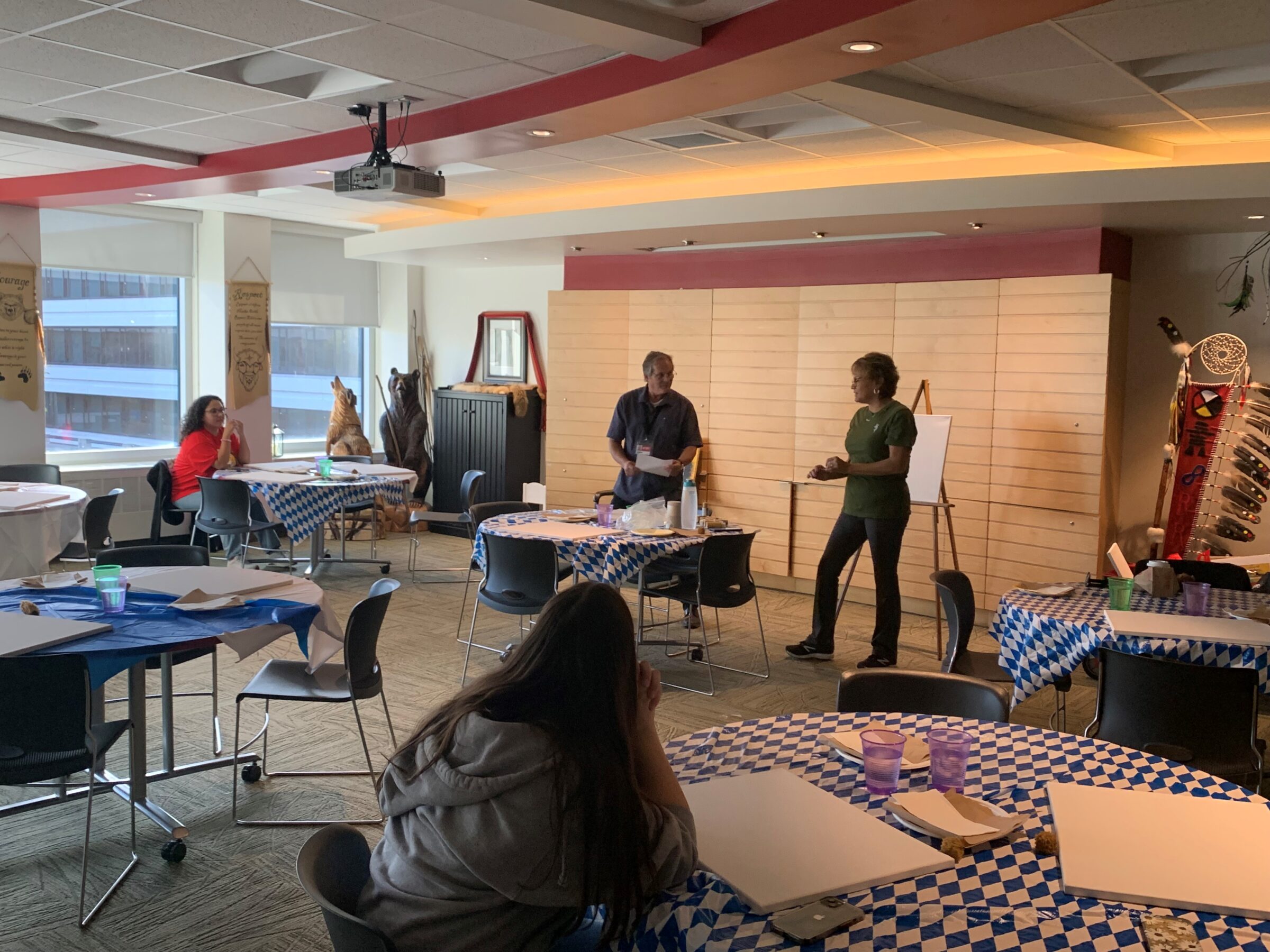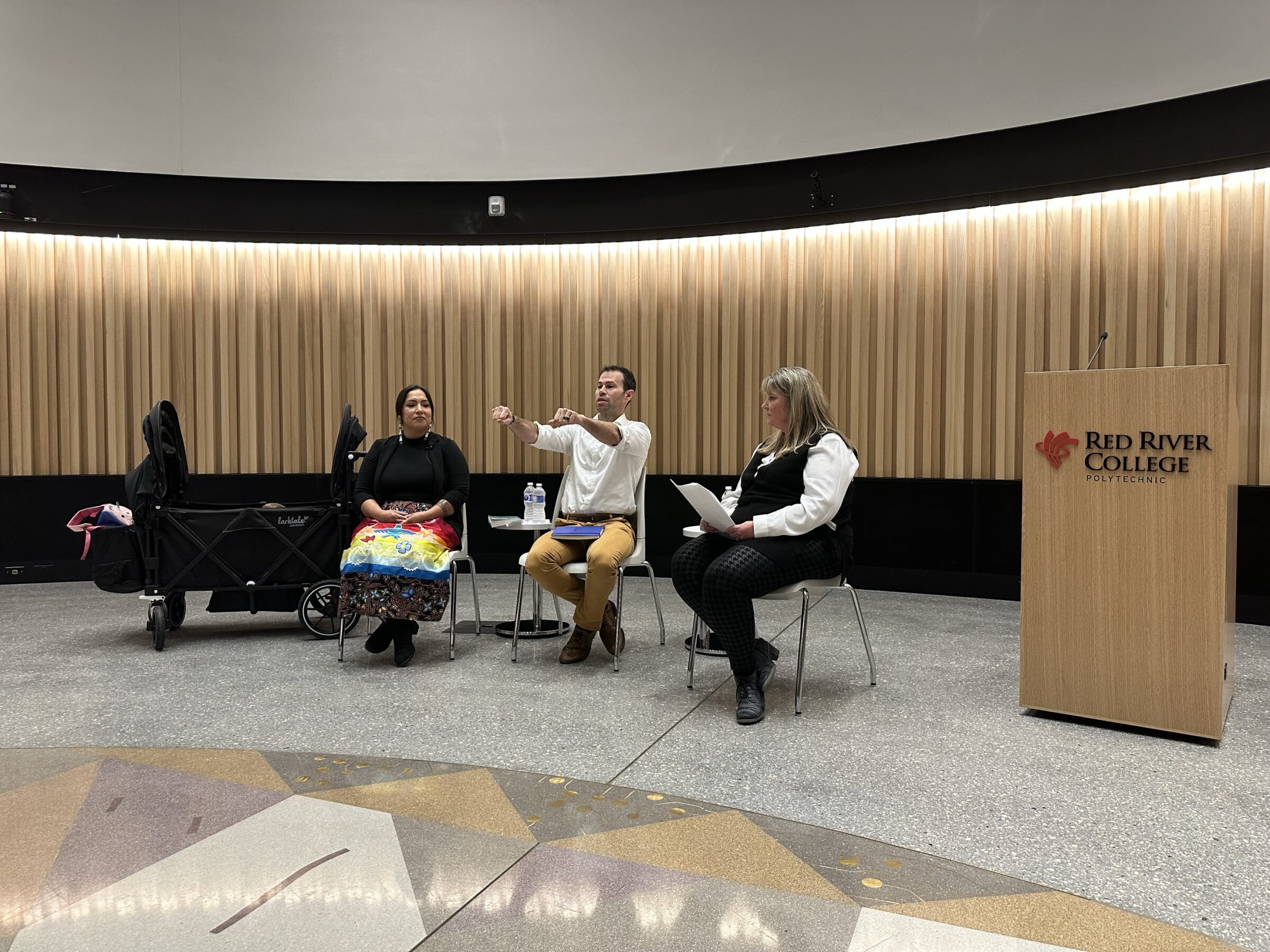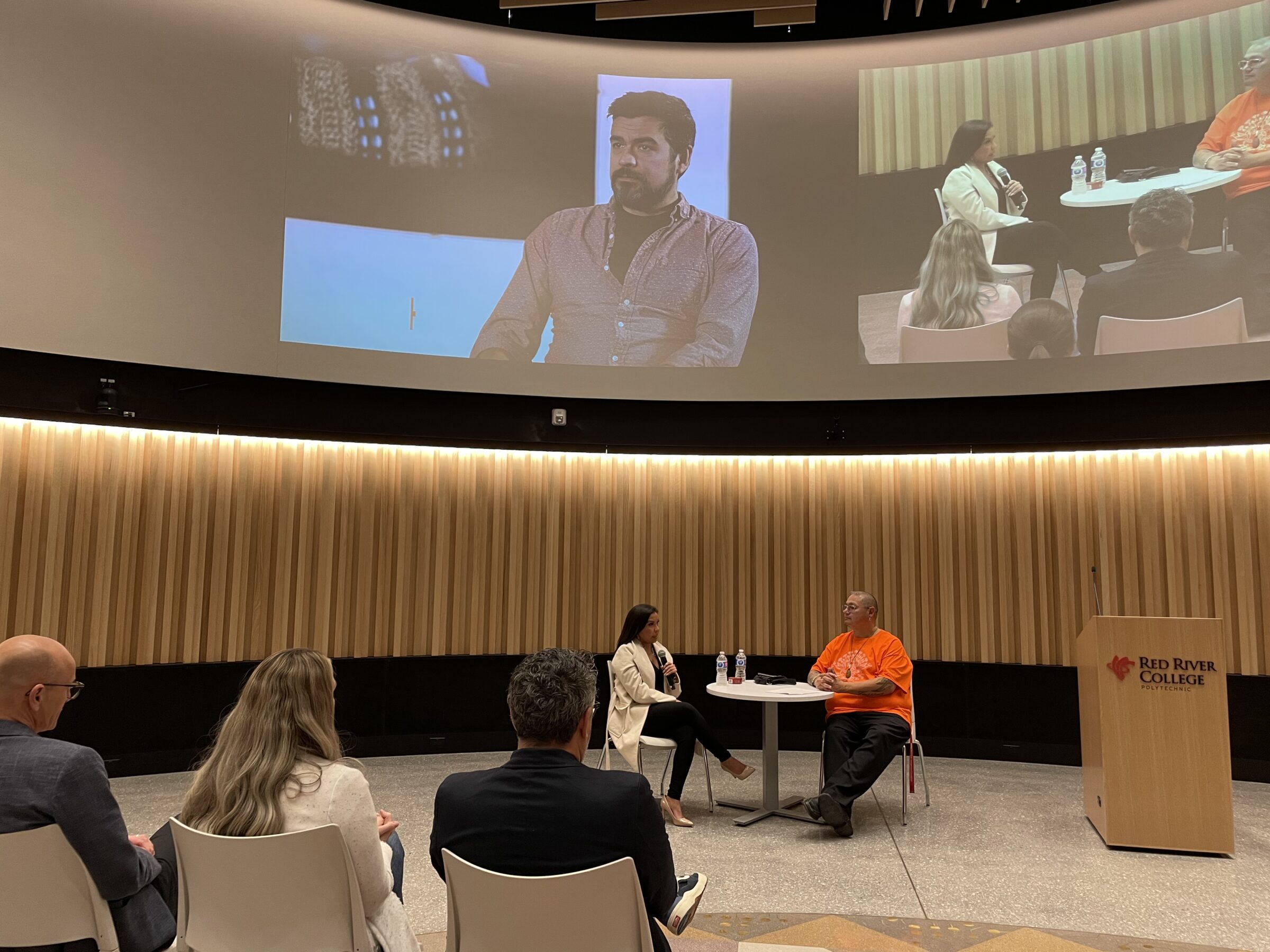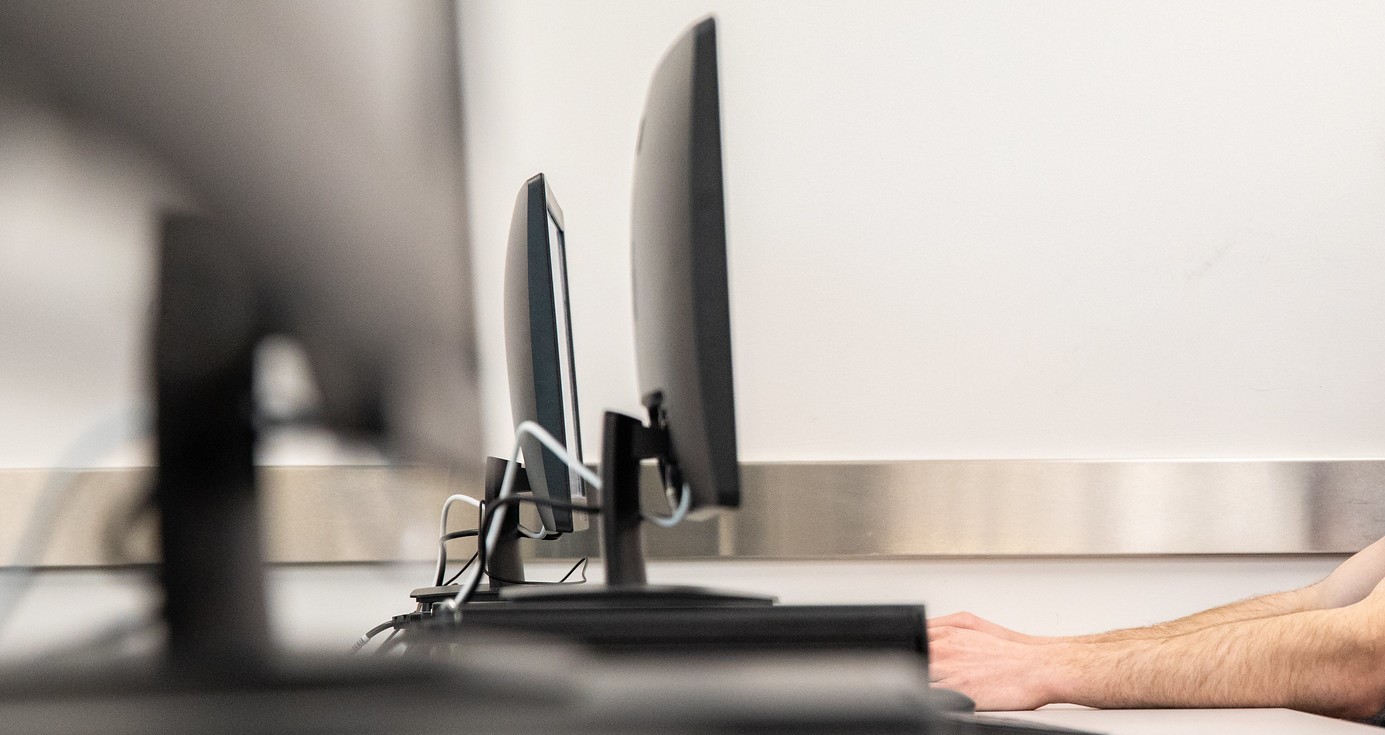Language reclamation in action
CWB Financial Group Supports Introduction to Anishinaabemowin (Ojibwe Language) at RRC Polytech.
“Boozhoo! Anang Makwa Dizhninikaaz. Peguis ni doonjii.”
Hello! My Spirit Name is Star Bear. I am from Peguis First Nation.
This is the introduction that Wyatt Sutherland learned to greet people with in Anishinaabemowin. Sutherland, a second-year Business Administration student from Peguis First Nation, has family members who are fluent in Anishinaabemowin. He took the opportunity last spring to attend RRC Polytech’s pilot course for Introduction to Anishinaabemowin to better understand his mother tongue among fellow learners.
RRC Polytech launched the pilot course Introduction to Anishinaabemowin in April 2023, which took place at Manitou a bi Bii daziigae at the Exchange District Campus, the name of which means Where Creator Sits – Brings the Light in Anishinaabemowin. Students learned basic greetings, alphabet systems and cultural and linguistic protocols over eight weeks.
“Even after completing the course, I use my flashcards and practice with my brother. Now that I know where to access language resources and how to use them, I feel much more confident,” said Sutherland.
Sutherland, with his classmates, learned how to greet people with their given names and Spirit Names and where they’re from—a traditional way to connect with others in the language. They learned over 140 vocabulary words and phrases that created the base upon which further language knowledge could be built.
Barrier-free access to language education is foundational to cultural reclamation and reconciliation. CWB Financial Group recognized the generational impact this course has and as they strive to create inclusive spaces for success and growth, they partnered with RRC Polytech to ensure the next cohort of students in Introduction to Anishinaabemowin have free tuition. They prioritize community investments focused on removing barriers for those pursuing skill development and learning and mentorship opportunities.
Corey Whitford, Anishinaabemowin Instructor, delivered lessons in the Sandy Bay dialect while acknowledging and honouring the various regional differences and dialects among the many Anishinaabemowin-speaking communities throughout Manitoba and surrounding areas.
“That first cohort really shaped the way that I teach my classes now,” said Whitford. “I’ve learned that you have to really engage the senses, to keep that retention. I’ve taken my classes to the Manitoba Museum, Giizhigooweyaabikwe Park or Painted Sky Woman Park, and I’m amazed every time by just how immersed they are in the content—not just the language itself, but the cultural and traditional knowledge.”
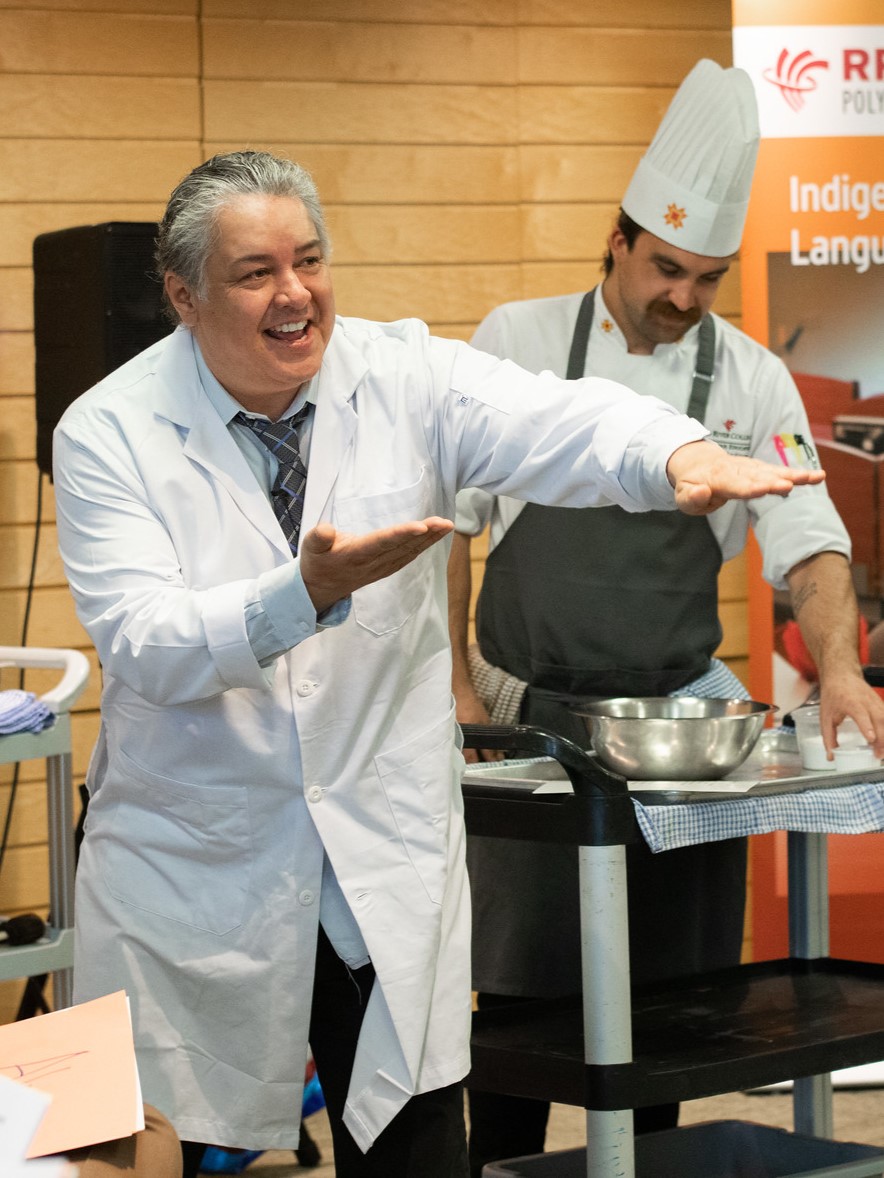
Whitford says his lesson plan includes going on field trips, dabbling in art with painting jars, playing traditional and contemporary games, sharing and preparing recipes, and listening to and singing songs. He teaches the course as an evening course on a registration basis and as an elective in the Social Innovation and Community Development program. He credits his grandmother, Kookum Victoria, with his inspiration and motivation to share the language with as many people as possible in as many ways as possible.
“Kookum Victoria was an extraordinary orator—Elders would call on her for her prayers, she was a poet. Her words were comforting and colourful, they expressed something beautiful that couldn’t have had the same weight if they were articulated in English. It was her gift,” Whitford said. “I can’t wait to see the next generation of poets. I want to help them get there.”
Whitford says he plans to continue to evolve the course as it progresses and hopes to one day also offer Introduction to Anishinaabemowin in live hybrid classes to reach more students.
Sutherland says his favourite aspect of the introductory course was the sense of comradery that bloomed from the small class and interactive lessons. He’s looking forward to the future progression course, Conversational Anishinaabemowin.
“Humour and joy are a huge part of the culture, despite the focus that exists on Indigenous hardship—we’re still here, and we get through trauma through our relationships and humour,” said Sutherland.
As a life-long learner and as an Indigenous person, Sutherland hopes that future Introduction to Anishinaabemowin students seize the opportunity to embrace the cultural depth that comes with reclaiming language.
“Try to be in the moment. The beautiful thing about learning the language is that: respect is inherent. There are no words for ‘you’re welcome,’ because thanks is always given,” said Sutherland.
For more information and to register for Introduction to Anishinaabemowin, generously supported by CWB Financial Group, visit the Program Explorer page.

